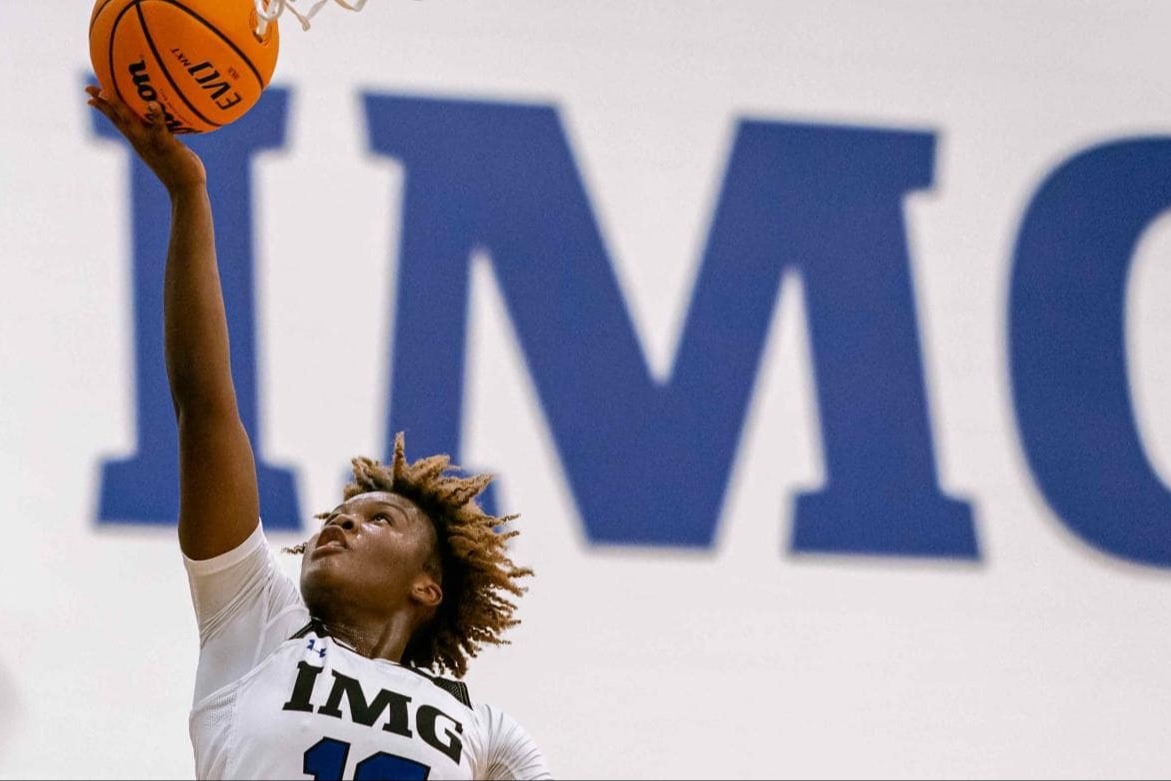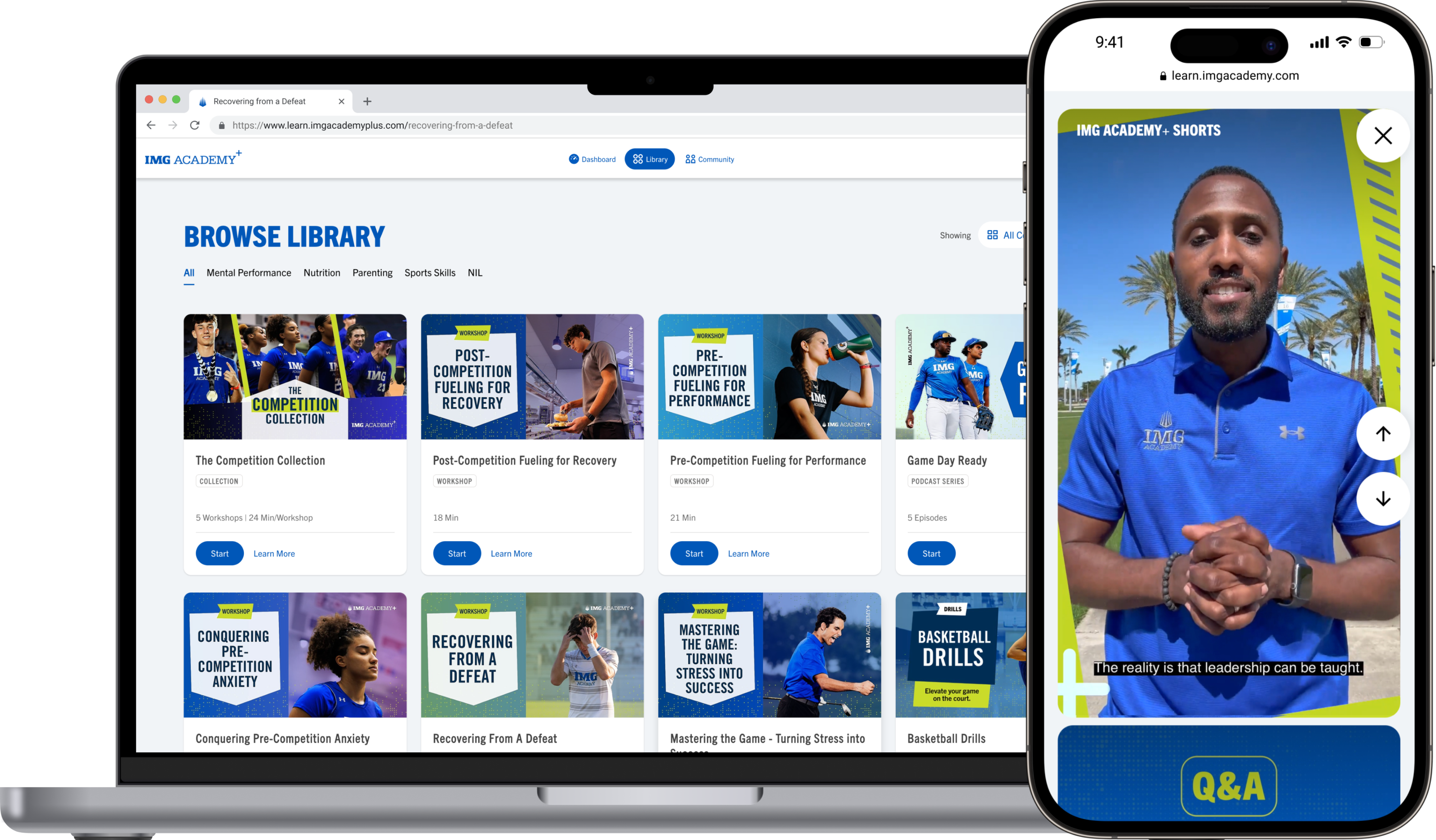How to Mentally Recover from a Physical Injury

Injuries in sport often bring not only physical pain but also significant mental challenges. In addition to sidelining a student-athlete, physical injury comes with the daunting prospect of rehabilitation and the uncertainty of when a person can get back to doing the thing they love.
However, despite these considerable downsides, there's an opportunity for profound mental growth and resilience. Read on for strategies to navigate the mental recovery process, overcome feelings of lost time, and make the most of forced downtime.
The Importance of a Positive Mindset
Although it can be difficult to do, research highlights the good outcomes that result from maintaining a positive mindset throughout the recovery journey.
A study in the British Journal of Sports Medicine found that psychological factors including motivation, confidence, and low fear were associated with a greater likelihood of athletes returning to their sport more quickly and getting back to their pre-injury level of participation.
"Being positive is not necessarily going to make the injury heal faster, but relying on skills such as emotional regulation, the establishment of a routine, and seeking social support can enhance the [healing] process," explains Dr. Duncan Simpson, Director of Personal Development at IMG Academy.
What is certain is that taking steps to envision successful rehabilitation, set achievable goals, establish daily routines, and seek support from coaches, teammates, and mental performance professionals can help student-athletes better navigate the recovery process and possibly even bounce back better than before.
How to Avoid Feeling Like You're Losing Time During Physical Recovery
When you're injured, it's completely understandable to feel like you're falling behind your teammates, says Lindsey Hamilton, Head of Mental Performance at IMG Academy.
"You're going to have a practice deficit compared to your peers who are still playing. But at the same time, we know that year-round play can lead to burnout," Hamilton says. "So, having a forced break from sport both physically and mentally can be beneficial. I've seen athletes come back from injury with increased intrinsic motivation. They're excited to get back out there." Simpson adds that injury can also "increase your gratitude and appreciation for your sport."
There is also an opportunity to gain a new perspective on a sport when you're away from it, Simpson says. He recommends that injured athletes continue to go to practice and watch while they're recovering. "If you take that step back but are still around the team, you get to see things from a coaching perspective," he says, which can potentially increase your tactical understanding of the game or sport.
Central to mental recovery is acknowledging the emotional impact of the injury and accepting it as part of your journey, Hamilton says. Dwelling on the injury will only worsen feelings of frustration, anger, and sadness. Student-athletes may also want to redirect their focus to meaningful activities that align with their values and aspirations, Hamilton suggests — for example, engaging in hobbies, spending time with loved ones, or pursuing educational or career opportunities.
However, if a student-athlete can't seem to shake these feelings after several weeks, both Simpson and Hamilton recommend seeking the support of a mental performance professional to process the emotions constructively.
Dealing with Post-Injury Fears
As the journey toward physical recovery progresses, student-athletes may get the jitters about returning to sport, both physically and mentally. Hamilton stresses the importance of setting realistic expectations and focusing on incremental progress. Celebrating small victories, such as completing a successful rehabilitation session or achieving a personal milestone, can bolster confidence and motivation.
Also, student-athletes may experience anxiety about getting back to the athletes they were, Hamilton says. That's where a cognitive switch can come into play. "What would it be like if that version was even better than the version you were before?" she says. Student-athletes may also want to think of this downtime as an advantage to leverage, since not everyone on the team had it. "That opens a whole realm of possibilities," Hamilton says.
That said, there's no sugarcoating it: Injury stinks. But it is also an opportunity for growth. Remember, setbacks are not roadblocks. They can be stepping stones toward greater self-discovery — and success.
Don't miss out on more resources. Explore IMG Academy+ Essentials.
IMG Academy+ Essentials
